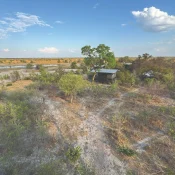
HOW TO MANAGE HABITAT LOSS IN ZIMBABWE
Habitat loss in Zimbabwe is a pressing environmental challenge, demanding multifaceted strategies for effective management. The primary drivers of this loss include agricultural expansion, deforestation, mining activities, and urbanization, all of which exert significant pressure on the country’s diverse ecosystems. Addressing this issue requires a collaborative approach involving government agencies, local communities, and conservation organizations.
One crucial aspect of managing habitat loss is the enforcement of existing environmental regulations. Strengthening the capacity of agencies like the Environmental Management Agency (EMA) to monitor and enforce these regulations is essential. This includes imposing stricter penalties for illegal deforestation and unsustainable land use practices. Furthermore, promoting sustainable land management practices within the agricultural sector is vital. Encouraging farmers to adopt agroforestry, conservation agriculture, and other eco-friendly techniques can help reduce the pressure on natural habitats.
Community engagement plays a pivotal role in conservation efforts. Empowering local communities to participate in habitat management and conservation initiatives can foster a sense of ownership and responsibility. This can be achieved through community-based natural resource management programs that provide alternative livelihoods and incentives for conservation. Additionally, raising public awareness about the importance of biodiversity and the consequences of habitat loss is crucial. Educational campaigns and outreach programs can help instil a conservation ethic among the population.
Protected areas, such as national parks and wildlife reserves, are essential for safeguarding biodiversity. However, their effectiveness depends on adequate funding and management. Investing in the management of these areas, including anti-poaching measures and habitat restoration, is crucial. Moreover, expanding the protected area network and establishing wildlife corridors can help connect fragmented habitats and facilitate wildlife movement.
Addressing deforestation requires a comprehensive approach that includes promoting sustainable forestry practices, reducing reliance on fuelwood, and exploring alternative energy sources. Reforestation and afforestation initiatives can help restore degraded forests and enhance carbon sequestration. Additionally, promoting the use of energy-efficient technologies and renewable energy sources can reduce the demand for fuelwood. Ultimately, a holistic and integrated approach that addresses the underlying causes of habitat loss is necessary to ensure the long-term conservation of Zimbabwe’s valuable ecosystems.
All Categories
Recent Posts
Kazuma Safari Camp –
Kariba’s Kumabirira Lodge Is The Perfect Hideaway
Contact Us
+263 789 532 918




